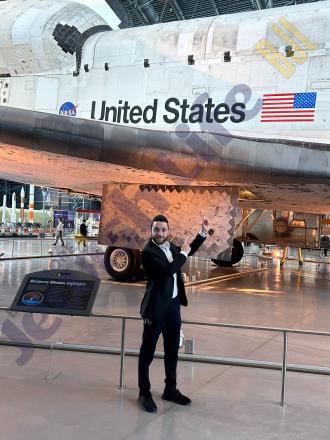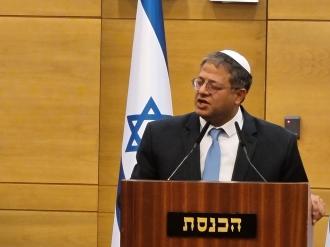Esav is overwhelmed by Yaakov’s display of brotherly affection. In a sudden turn of heart, Esav genuinely offers to escort Yaakov’s family on their journey. Yaakov still fearing Esav’s intentions encourages Esav to continue at his own pace towards his destination to Seir, while he will travel at the gait of his children and drove, but promising, אבא אל אדני שעירה, I will come to my lord at Seir, eventually.
The Talmud teaches that this was a deceptive tactic deluding Esav into thinking he had more time to exact his revenge against Yaakov, assuming Yaakov will be following him to Seir, while in reality Yaakov detoured much earlier towards Sukkos, thus escaping any evil intended harm from Esav.
The Midrash adds that Yaakov being an אַמִיתִּי, a man of truth, was actually asserting the ultimate emes since in the days of Moshiach, The saviors will ascend mount Zion to judge Esav’s mountain (Seir), and ‘Yaakov’ will indeed arrive at Seir.
Does saying something that is technically true, but nevertheless deceptive to the person it is being told to, truly fulfill one’s mission to be truthful?
Embedded within this verse:אבא אל אדני שעירה , is the name of אליהו, Eliyahu, the prophet, as the last letters spell out א-ל-י-ה, the manner his name appears in five places, lacking the letter ו, as evidence of his promise to retrieve the ו from עשו and restore it to the ‘full’ name of יעקוב, Yaakov.
The word א-ב-א, I will come, is numerically equal to four, intimating this will take place at the end of all ‘four’ exiles. (בעל הטורים, מגלה עמוקות)
Evidently there is significance to this allusion precisely here at this juncture in the story, and not merely a convenient usage to satisfy Yaakov’s allegiance to truth.
There are three assertions made by Yaakov that he hoped would deter Esav from accompanying him.
1- Now, let my master go ahead before his servant, and I will move [at] my own slow pace, according to the pace of the work that is before me and according to the pace of the children until...
2- I will come to my lord at Seir.
After Esav still insists to let me leave with you some of the people who are with me, Yaakov responds:
3- Why [do] that? May I find favor in my master’s eyes.
Each response seems like very practical reasons to convince Esav to not delay. Yaakov claims, the kids and cattle can’t possibly keep up with you. I will meet you later anyway. You don’t need to do exert energy to prove your allegiance, just by my finding favor in your eyes is valuable to me.
On the face of it, Yaakov agreed on the objective to assist the children and drove, it was just a question of impracticality.
Although that is what it sounded like to Esav’s ears, but the ‘man of truth’ was reasserting to himself a very different message. Yaakov really meant to to reaffirm that our objectives are never defined by our personal needs and interests, with our children merely baggage we must carry along. Yaakov was asserting to himself that the ‘needs’ of the children, and the ‘possessions’ we are granted, define our map and goals in life and their responsibilities.
Yaakov’s unfortunate need to implement a decoy was a tactic he’d rather not employ, but it was an expedient for his safety. At the same time the ‘man of truth’ reiterated with these very words a indispensable consciousness that would guide him through life. Our interactions with the nations of the world aren’t simply obstacles we must hurdle. They are challenges to see if the promotion of our values and truths are so compelling that the nations are influenced positively by them.
Yaakov was aware that the time was not ripe to ‘judge Esav’s mountain’, but the goal must never be forgotten. We will succeed in ascending mount Zion and displaying the Torah’s exquisite beauty to a crass world. Only then will Moshiach appear.
Finally, although to Esav’s ears, our being satisfied with finding favor in his eyes, is quite gratifying and pleasant, but it is far from the truth of our attitude. Our mission is to adhere to the truth regardless of whether we are appreciated or not. Pure truth speaks for itself.
That last verse can be alternately translated: and Yaakov said, למה זה אמצא חן בעיני אדוני, why do I need to find favor in the eyes of my lord?!
He wouldn’t dare state that to Esav but was rather fortifying himself to that truth.
In the comfortable galus we live in we often succumb to aspiring to the goals society sets for themselves, measuring success by a very meager yardstick.
We often forget that we must not satisfy ourselves by living ‘peacefully’ and being granted ‘equal rights’. We must inspire the world by our lives and creed.
We must never simply ‘seek grace in their eyes’. We must adhere to truth no matter what comes our way. Even if it isn’t popular. Truth speaks for itself and will capture the hearts of man naturally without the need to cower and cajole.
באהבה,
צבי יהודה טייכמאן

















